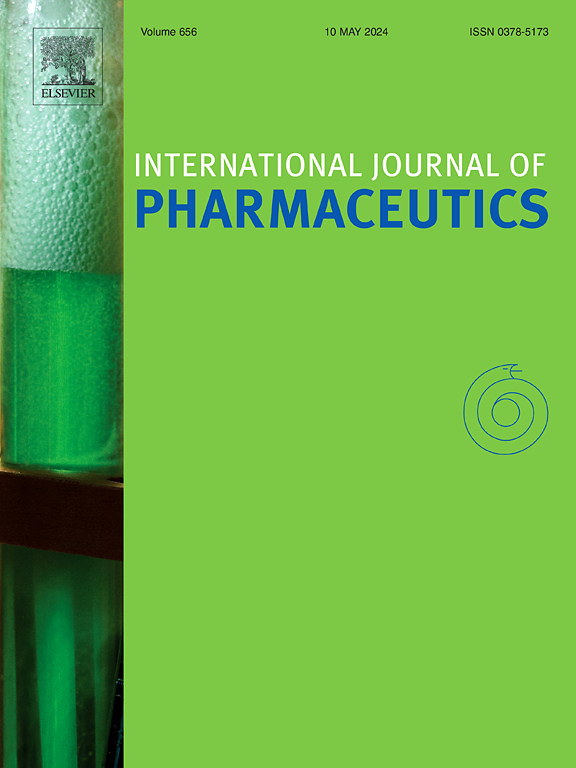Targeting ovarian cancer: The promise of liposome-based therapies
IF 5.3
2区 医学
Q1 PHARMACOLOGY & PHARMACY
引用次数: 0
Abstract
A major cause of mortality among gynecological cancers, ovarian cancer is frequently unresponsive to standard therapies because to systemic toxicity and medication resistance. The contribution of liposomal drug delivery systems, specifically pegylated liposomal doxorubicin (PLD), to the advancement of ovarian cancer treatment is examined in this review. Liposomes, spherical lipid vesicles consisting of bilayer phospholipids, enable better drug delivery by preserving encapsulated pharmaceuticals and enabling tailored administration to tumor areas. In comparison to traditional doxorubicin, PLD has a better pharmacokinetic profile and less cardiotoxicity, according to the analysis, which examines several trials showing its effectiveness in treating both platinum-sensitive and platinum-resistant ovarian cancer. Furthermore, studies on liposomal versions of other medications, such as paclitaxel and cisplatin, demonstrate encouraging effects in terms of overcoming drug resistance and enhancing therapeutic outcomes. Recent advancements in tailored liposomal delivery systems that include components such tumor-specific peptides and folate receptors show improved tumor selectivity and fewer adverse effects. The study also looks at new combination treatments that use liposomal formulations with immunotherapeutic and new targeted medicines. Although liposomal drug delivery methods have great potential for treating ovarian cancer, further study is required to maximize their effectiveness, reduce side effects, and get beyond resistance mechanisms. These developments in liposomal technology are a major step toward turning ovarian cancer from a deadly illness into a chronic condition that can be managed, possibly increasing patient survival and quality of life.

靶向卵巢癌:脂质体疗法的前景
卵巢癌是妇科癌症死亡的主要原因,由于全身毒性和耐药性,卵巢癌通常对标准治疗无反应。本文综述了脂质体药物递送系统,特别是聚乙二醇化脂质体阿霉素(PLD)对卵巢癌治疗进展的贡献。脂质体是由双层磷脂组成的球形脂质囊泡,通过保存包裹的药物和针对肿瘤区域的定制给药,可以更好地给药。与传统的阿霉素相比,PLD具有更好的药代动力学特征和更少的心脏毒性,根据分析,该分析检查了几项试验,显示其治疗铂敏感和铂耐药卵巢癌的有效性。此外,对其他药物的脂质体版本的研究,如紫杉醇和顺铂,在克服耐药性和提高治疗结果方面显示出令人鼓舞的效果。最近在包括肿瘤特异性肽和叶酸受体等成分的定制脂质体递送系统中取得的进展表明,肿瘤选择性得到了提高,不良反应减少。该研究还着眼于使用脂质体配方与免疫治疗和新的靶向药物的新的联合治疗。虽然脂质体给药方法在治疗卵巢癌方面具有很大的潜力,但需要进一步的研究来最大限度地提高其有效性,减少副作用,并超越耐药机制。脂质体技术的这些发展是将卵巢癌从一种致命疾病转变为一种可以控制的慢性疾病的重要一步,可能会提高患者的生存率和生活质量。
本文章由计算机程序翻译,如有差异,请以英文原文为准。
求助全文
约1分钟内获得全文
求助全文
来源期刊
CiteScore
10.70
自引率
8.60%
发文量
951
审稿时长
72 days
期刊介绍:
The International Journal of Pharmaceutics is the third most cited journal in the "Pharmacy & Pharmacology" category out of 366 journals, being the true home for pharmaceutical scientists concerned with the physical, chemical and biological properties of devices and delivery systems for drugs, vaccines and biologicals, including their design, manufacture and evaluation. This includes evaluation of the properties of drugs, excipients such as surfactants and polymers and novel materials. The journal has special sections on pharmaceutical nanotechnology and personalized medicines, and publishes research papers, reviews, commentaries and letters to the editor as well as special issues.

 求助内容:
求助内容: 应助结果提醒方式:
应助结果提醒方式:


